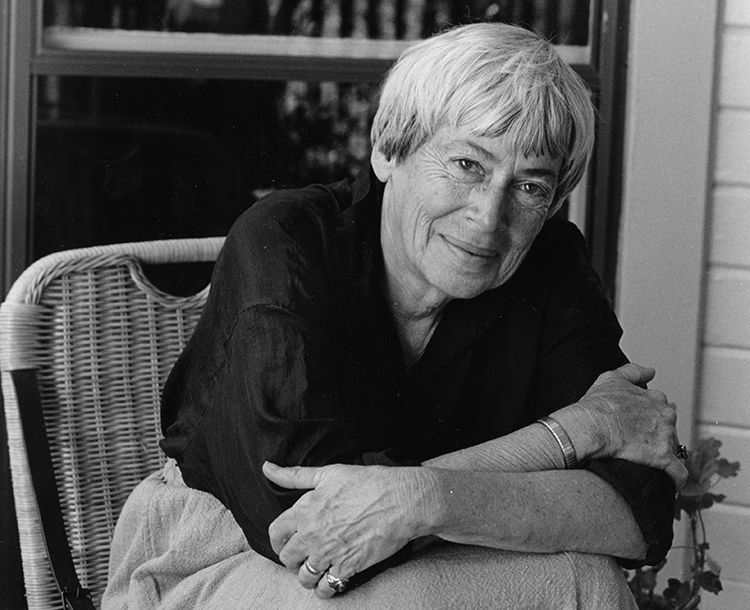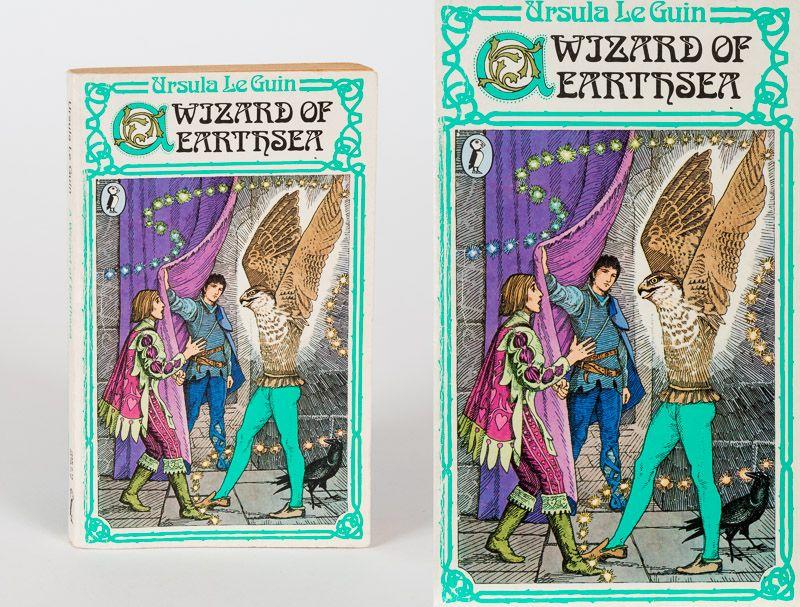What It's About (from Goodreads):
When young Tenar is chosen as high priestess to the ancient and nameless Powers of the Earth, everything is taken away - home, family, possessions, even her name. For she is now Arha, the Eaten One, guardian of the ominous Tombs of Atuan.
While she is learning her way through the dark labyrinth, a young wizard, Ged, comes to steal the Tombs' greatest hidden treasure, the Ring of Erreth-Akbe. But Ged also brings with him the light of magic, and together, he and Tenar escape from the darkness that has become her domain.
Opening Lines:
Prologue
"Come home, Tenar! Come home!"
In the deep valley, in the twilight, the apple trees were on the eve of blossoming; here and there among the shadowed boughs one flower had opened early, rose and white, like a faint star. Down the orchard aisles, in the thick, new, wet grass, a little girl ran for the joy of running; hearing the call she did not come at once, but made a long circle before she turned her face toward home. The mother waiting in the doorway of the hut, with the firelight behind her, watched the tiny figure running and bobbing like a bit of thistledown blown over the darkening grass beneath the trees."
My Thoughts:
When I was a school boy in England, many moons ago, I read Le Guin's A Wizard of Earthsea. It made a lasting impression on me (as it did Neil Gaiman, as he writes HERE.) But, I had never gone ahead and read the other books in the series. When Le Guin died earlier this year, I decided to put that to rights.
Ged Sparrowhawk, the protagonist of A Wizard of Earthsea, makes an appearance in this book, but the main focus is on Tenar, renamed Arha, The Eaten One, when she becomes the One Priestess of the Tombs of Atuan.
Le Guin's world building is tremendous. Her father was a well-known anthropologist, and his interest in the study of humankind obviously made its way to his daughter. The search for a new priestess upon the death of a preceding one reminded me of the Tibetan belief in reincarnation, and the search for the new child born upon the death of a Dalai Lama. Poignantly, the carefree child with whom the novel opens, is taken at age five for training in a desert compound near the tombs. Her training is severe, and she becomes hardened and hardhearted.
But, even in this dark place, a shard of her former self remains. So, when she spies Ged hunting for the Ring of Erreth-Akbe in the tombs, curiosity gets the better of her. As she gets to know him, she begins to doubt what she has been told about her life as the One Priestess. She and Ged escape.
The theme of the novel might be that of a girl coming into the knowledge of her true power. In an Afterword written forty years after the book was published, Le Guin writes: "Maybe it was the whole primitive, hateful idea of the feminine as dark, blind, weak, and evil that I saw shaking itself to pieces, imploding, crumbling into wreckage on a desert ground. And I rejoiced to see it fall. I still do."
A woman friend of mine told me recently that when she read the Tombs of Atuan when she was twelve, it was transformative.
Ursula Le Guin's writing will do that to you!
About The Author:
Ursula K. Le Guin was born in 1929 in Berkeley, California. She published twenty-two novels, eleven volumes of short stories, four collections of essays, twelve books for children, six volumes of poetry and four of translation, and received many awards: Hugo, Nebula, National Book Award, PEN-Malamud, etc. A long-time resident of Portland, Oregon, Le Guin died on January 22nd, 2018.




